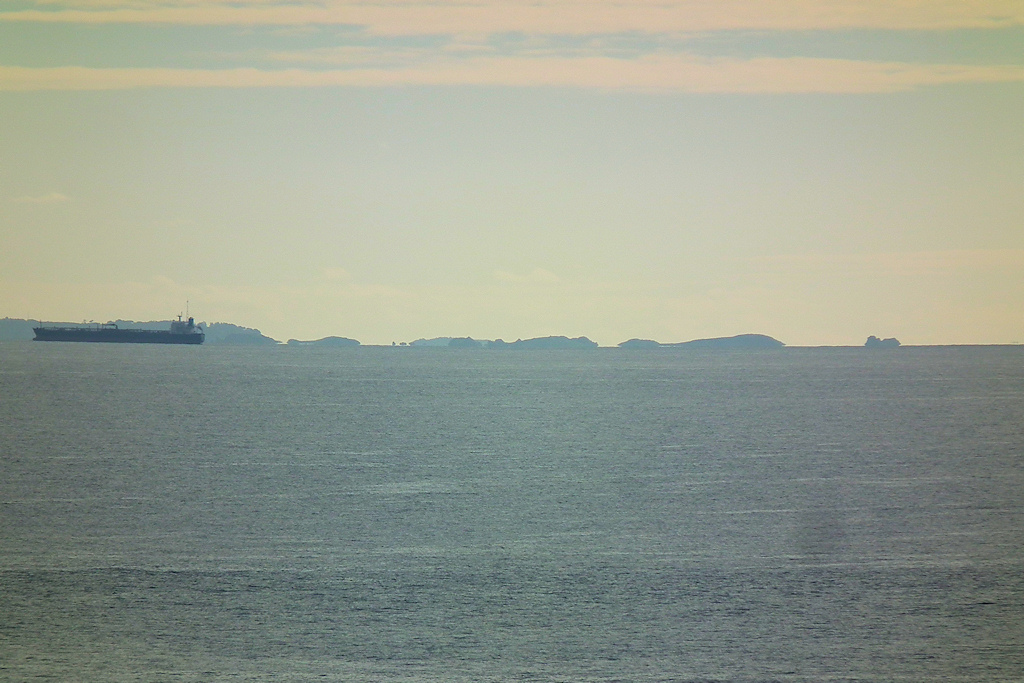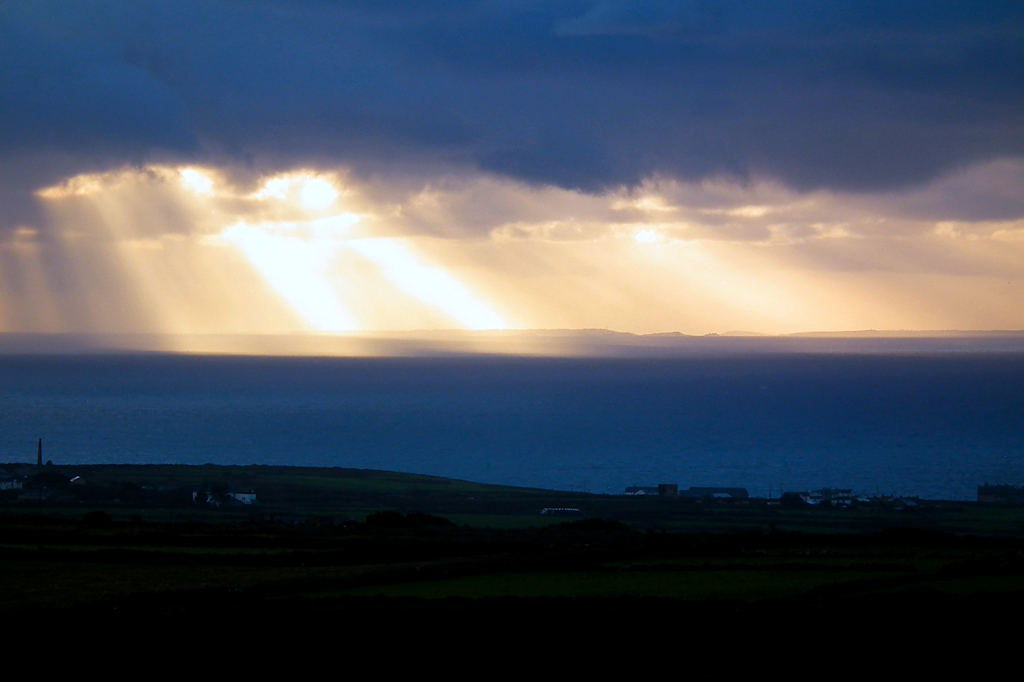
The world was on tenterhooks. After the assassination of Trump’s vice-president by a white South African, America could no longer play off different groups of nations against each other. Netanyahu’s threat to drop nukes on Turkey had put NATO in an acutely difficult position, exposing its double standards. Trump was raging at Israel’s intransigence and Putin, looking haggard in his hospital bed, uttered boisterous words in support of him when everyone knew that, in his tenuous position, and now being undermined by the Moscow oligarchy, he could promise nothing.
The Israeli civil disturbances were brutal, with neither side willing to step back – the media were under strict instructions not to call it a civil war. The mowing down by the Judaean Settler Army of Palestinians trying to escape over the Jordan valley had variously dismayed the world, exposing the inevitable consequences of their inaction. Even Israelis were not allowed out of Israel – at Ben Gurion airport and the two remaining land crossing points, only approved Israelis could leave. There had been a full-scale call-up of reservists but they were taking different sides, taking their weaponry with them. India had at last withdrawn its support for Israel. China had remained silent, concerned as usual about its markets, oil sources and leverage in the newly denominated West Asia.
After the establishment of the Sahelian Dirham, the currency of the new Sahelian Alliance, other small countries flooded to join it, abandoning the Dollar and distancing also from the newly-minted Renminbi-Rouble bloc – after all, the Russians and Chinese were resource-gulping imperialists too. The resignation of the UN Secretary General, saying he had done his best but it had led only to this, was rejected by a uniquely united Security Council. Then Netanyahu, looking taut-faced and cornered, put the cat amongst the pigeons. He boldly declared in Hebrew that, if threats against Israel continued, he would detonate his country’s nukes and incinerate the country – by implication, a second, self-imposed holocaust, as if to prove his version of history to be correct. Chaos broke out not only in Israel but also in the steets of Damascus, Beirut, Amman and Cairo as crowds panicked.
Trump’s speech from Mar a Lago (since Washington DC had become too dangerous) had been surprisingly firm and calming – the invasion would be paused for now. Secretary Blinken, drafted from his thinktank job by Trump to deal with a situation he had played a large role in creating, was to be given a last chance to pacify the Israelis. Gaza, left with only stragglers and people unable to escape, already looked as if it had been nuked, though it hadn’t. Saudi Arabia had reluctantly opened its borders to Palestinians to relieve refugee pressure on UAE and Egypt – well, it swelled the numbers moving into Neom, the new desert city not too far from Sinai and Gaza. Meanwhile, UNHCR, backed by the first Polish and Swedish battallions in the new European army, had taken over refugee operations in Greece. Refugees were coming in big numbers. Now there was a new crowd from the Tashkent earthquake and nuclear disaster.
In the English Channel, disaster came when a container freighter and an oil tanker collided. An oil and chemical slick was spreading and most shipping through the busy Channel was blocked. Both ships had been trying to avoid refugee boats. The UK authorities were now running ferries to Calais to pick up refugees who were endangering shipping in yet another of the world’s maritime choke-points. This caused further supply-line disruptions in crisis-ridden Europe as shipping was diverted north of Scotland, exposing it to both Russian and American naval attentions. Europe was on its own, suddenly sandwiched between two big powers.
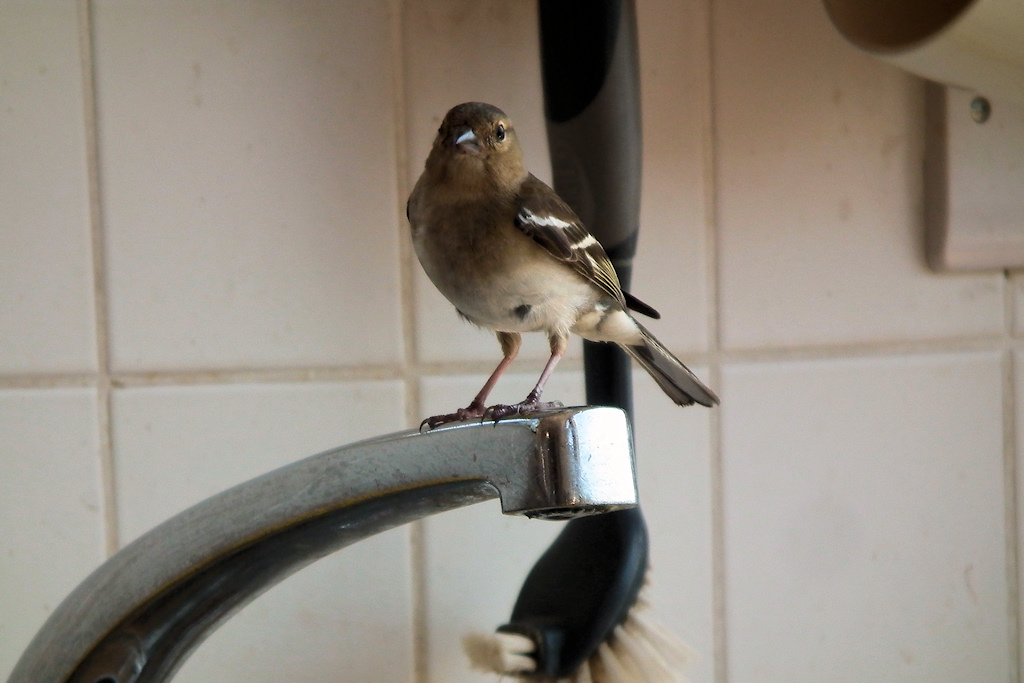
Possible realities… Improbable, yet all the same possible.
A big problem we face is that the world approaches the future facing backwards. We see the future on the past’s terms, afraid to make a leap, afraid to acknowledge that we’re lost at sea, afraid that everything could go wrong – and in so doing, we’re making things even worse. Consequence-delivering chickens are coming home to roost, in waves. This might go on for a number of decades, because the world seems so determined to drag its feet through every single learning experience that comes to face it. Such global brinkmanship arises from a collective failure to own up to the full consequences of what we have done. A multipolar deadlock has unfolded. The powers that be are all busily making sure nothing really changes – not fundamentally.
But there is another kind of brink we’re slipping over. It started around 2012 or, further back, perhaps 1989. Or perhaps 1967-68. It’s this: even if the world decided tomorrow to mobilise humanity, wholeheartedly embracing fundamental change, we would tip into a new, anxious period of at least a few decades. Whatever we do, we would not know for some time whether and how much the solutions we attempt will actually bear fruit.
It takes time for a forest to grow, for an invention to be trialled, for society to change its values and for the fruits of systems-redesign to show themselves. Not all solutions will work, some might backfire, and the world is hamstrung, riddled with complexity, interdependence and conflicting interests. We’ve sidled into a minefield. This creates an underlyingly edgy and anxious atmosphere, stoking up an already insecure and volatile situation.
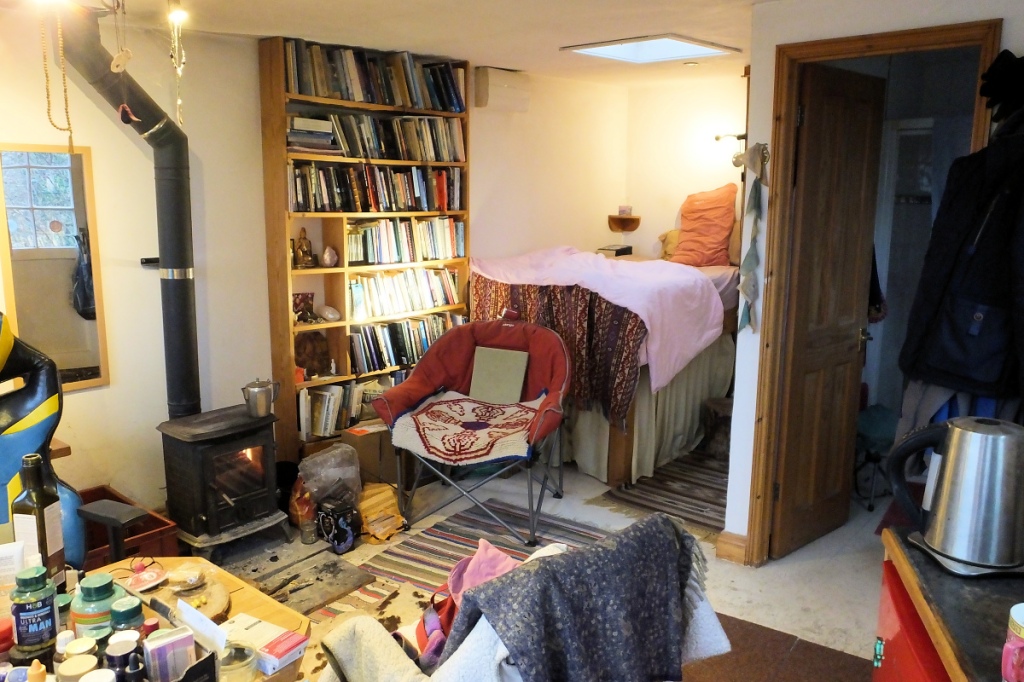
I was reflecting on all this a few nights ago while lying in bed, listening to the owls hooting and screeching outside. It reminded me of my own cancer story. We all face an underlying, nagging issue, and cancer patients get it in a big, pressing dose, thrust in our faces.
When and how am I going to die?
And here’s the rub: you get no answer.
It could be anytime, anyhow.
Making plans gets difficult when you know there’s a good chance that anything can come along to scupper them. Whether or not you’re going to die soon, this still comes up, variously for everyone, when we’re scared enough to look at it. With cancer, I’ve found I’ve become much more sensitive to anything charged with any feeling at all. It’s not fear, exactly – it’s an insecure, creeping anticipation that hovers in the background. Worse, no one wants to talk about it.
In my own case, I’m rather surprised to be alive. I’m unsure what plans to make, and with what time-perspective. So I tend to keep my perspective open, but with the headlights shining on only the next three months, and anything beyond that is unanswerable. This has a remarkable effect on everything. It’s tenterhooky, no matter how philosophical or optimistic I might be, and no matter how much others encourage me to ‘get better’, not to dwell on morbid things – as if dying were a failure and living a success.
Sorry, dear Kate, Princess of Wales, while I understand your wish to assure everyone by saying you’re getting better, this is unwise. You do not know. It’s unwise to yield to that implicit social pressure to make everything look alright, because it isn’t alright.
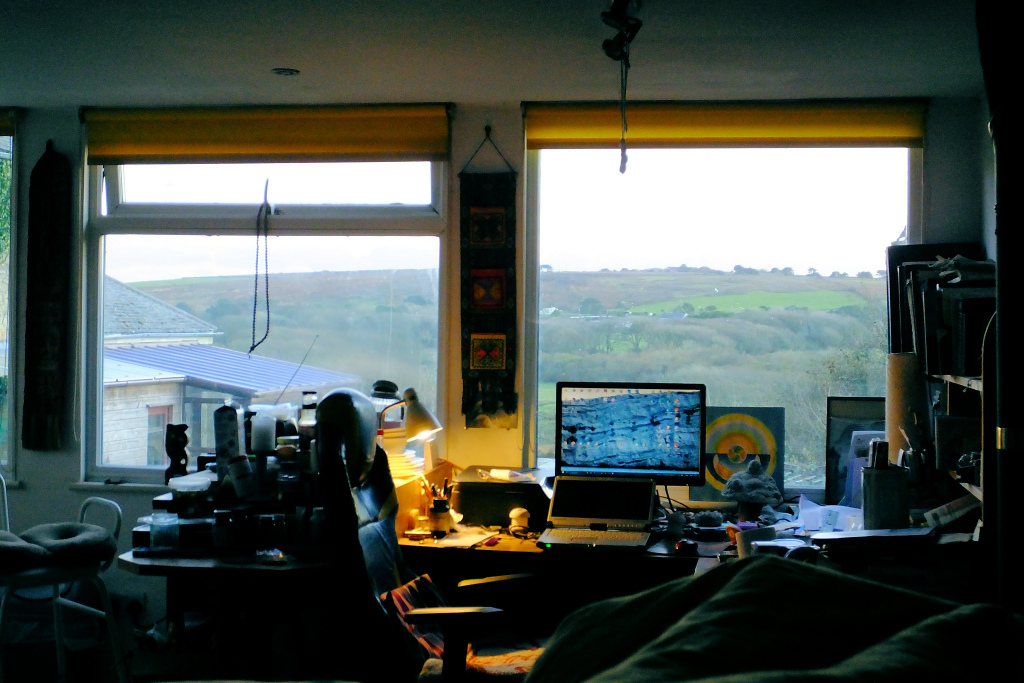
This is our world situation. We’ve stumbled into a mire of uncertainty and complexity. We have squads of scientists, super-forecasters and expert-texperts, and mega-millions of people with armchairs and opinions, yet we’ve become unable to accept the obvious – that the future is not as clear and fixable as we would like it to be. It’s left mostly to the young to point this out, while they’re still at an age where they are uncompromised by fear of loss and chaos.
Cancer patients, in my observation, divide into roughly three camps. Some are in denial – they take the pills, do the chemo, get the op, and do their best to appear and return to normal – it was just a bad dream and it’s over now. Some are heroic, fighting, striving to overcome and conquer cancer, and some of these will succeed while they have the willpower to do so, but it’s experienced as a fight, not a gift. And some come through to a level of acceptance and forgiveness that allows them to live and die in greater peace, whatever is to happen. To some extent all cancer patients hover between these three in different ways and proportions because cancer does indeed have a convincing way of putting the fear of God up you.
I have my struggles with this. I get fed up with all the pills, disciplines, diets and doctors’ appointments a valiant cancer patient is supposed to appreciate, to save their life and relieve others of the pain of loss, and sometimes I just want to say ‘fuckit’, to be normal, get my life, or even my ex-partner, back (fat chance). Other times I work on rising up within myself, trying to be a good human, in case God notices and gives me a reprieve – which won’t really happen since it’s a pointless, guilt-ridden belief.
Anyway, I’m doing quite well with my cancer, and I think it has something to do with full-on acceptance, yielding to The Force. I’ve lost control – yet, like a slalom skier, or when you first learn to ride a bike, or even like sex, by losing control you find a new balance.
In times of despair, hope sometimes stretches far further than it realistically should – like the vain hope that many Gazans entertain, that the decent people across the world will step in to save them. But just because something should happen, it doesn’t mean that it will.
At times I’m given deep truth-moments and gifts of spirit. I go down into the depths and up to the heaven-worlds, handing myself over in a humbled acceptance of my powerlessness and the overwhelming force of my circumstances, dependency and weakness – and the paradox is that, every time I drag myself through such a crunch-period, something in me is healed and reborn.
Here I still find myself, alive in a body and wondering what exactly for. Am I just here because I’m here? Or is there more to life? Yet my inner growth process has been ramped up to three times the speed, with a lot more depth, breath and height, and with a vulnerability that has amplified the emotional impacts, the feelingful fullness of being alive. That’s what I’ve been given.
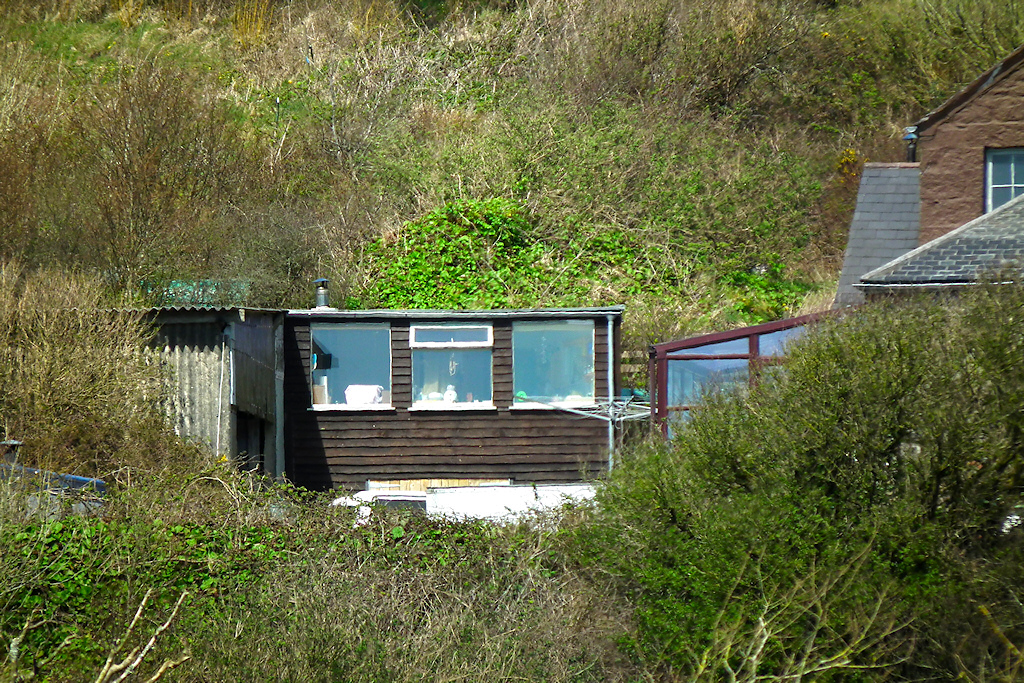
So it is with the world. The world has cancer, depression, anxiety, diabetes, fentanyl addiction, ME and a strange mixture of obesity and hunger. Part of us wants everything to return to normal, if only we could just buy an electric car, and part teeters on the edge of an abyss, flummoxed and hovering between lightbulb moments and flounderous resignation.
A nightmare is unfolding. However, while plenty of horror, injustice and destruction are going on, World War Three is now mainly a hearts-and-minds matter, not one of nuclear bombs or evil terrorists.
This is what we have been given. Or, collectively and unconsciously, it’s what we gave ourselves, to teach us something. We’ve created a situation where, kicking and screaming, we’re being arm-twisted into change. This is the great value of the Trumps, Putins, massacres, disasters and tragedies we face: they’re putting options before us. The stakes are rising until, sometime, we get it – we get the fundamental lesson, the lesson that will save us and redeem the damage and pain. So it is with cancer.
What none of the pundits in the commentariat mention is the spiritual crisis the world is in. Mental illness is not limited to those who are diagnosed with it, as if a certification of our woes would contain the crisis: it’s a disease of a psychotic world society, taking different forms in different places. All of it points to one core issue.
We have lost our way, lost our humanity. We’re deeply worried about what’s going on. We don’t know how to make it go away. Even the wisdom teachers, psychologists and solution-bringers are lost. As an astrologer I can often see when a wave is coming, but what will actually happen is at best qualified guesswork.
We’re faced with the Great Yawning Gap, like a black hole sucking us into some sort of final battle for the hearts and minds of humanity. Well, that’s what it feels like, sometimes. This presents heightened choices. These choices have been around for quite a time – I was one of those harping on about it when a Sixties teenager – but the stakes are rising with each year and decade.
It’s highly symbolic of the state of humanity, particularly for the global minority, for the one billion of us privileged to live in the rich world, that cancer has become a big issue. Because cancer hits you like a battering ram, with immediate life-changing consequences and a threat of imminent termination. Loss of control. Loss of everything. When you die you take nothing with you except what you have become.
The biggest, deepest choice we are faced with is this. Just because life doesn’t go the way we want, does this mean it’s going wrong? If we get faced with cancer or similar terminal or disabling ailments, or earth-shaking experiences such as war, disaster, loss, hardship or death, is this something going wrong or something going right?
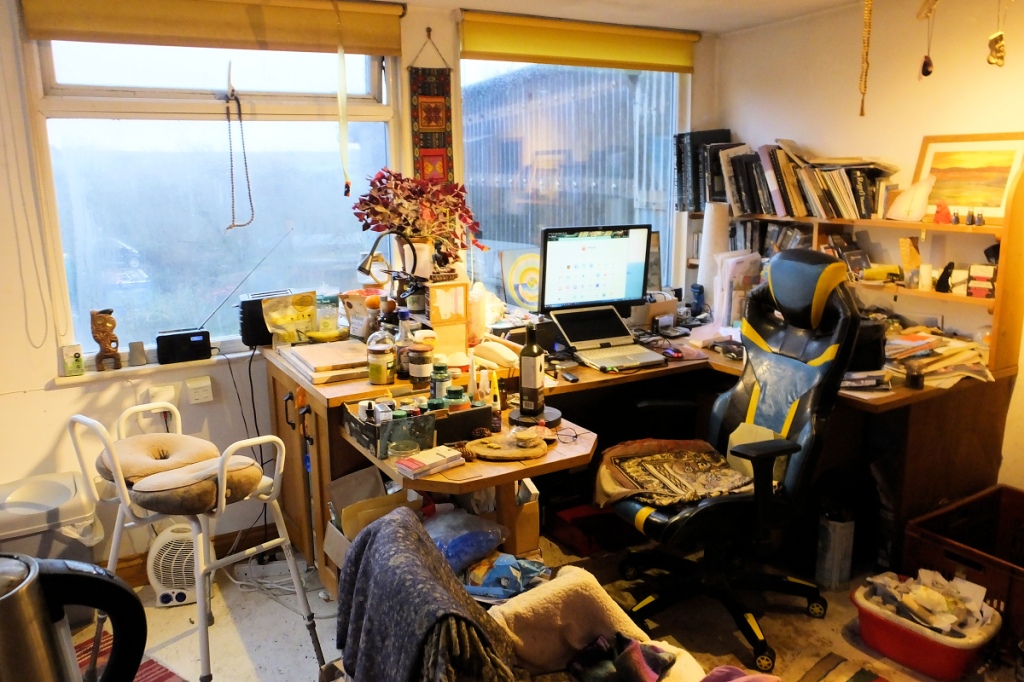
This is a very deep question. But in it lies a solution that lies at the foundation of our situation, from personal to global.
With cancer, in my experience, the secret is to embrace it and make friends with it. I manifested it and, whether or not I understand why, it came for a reason, not by chance or bad luck, and it gives me a deep learning for the soul. It’s a life-changer of a high order. Something is going right. Similarly, it might be difficult to see this at present, what with all that’s going on around us, but something is going right in the world.
To see this, it is necessary to step out of life somewhat, out of the mill and the grindstone, to see things from another viewpoint – the viewpoint of a soul visiting Earth. We came into life to do something with it – not only to learn but also to make a contribution. Society doesn’t think that way – it encourages us to snap out of it – but in the cultural, institutional and societal mass-avoidance of our time we miss something crucial about life.
Have we each made our contribution?
In Western culture we even believe that we get only one life, and that when we die we cease existing. This belief is unthought through, ideological and deeply problematic. It’s a key part of the world’s problem today – a way of blanking out the longterm and avoiding taking responsibility for anything much more than ourselves, those close to us, our properties, concerns and beliefs, and only for the next three years.
We’ve become hyper-privatised, socially atomised. The world is crowded but we don’t even know our neighbours. It’s crowded, yet loneliness is at its historic zenith.
The world we omit to save now is the same world that many of us will wish to return to in another life – after all, we have the best chocolate in the universe, and in most worlds getting rich, being a star or a tall poppy is distasteful and antisocial – that’s best done here, if you want it. Even if we don’t come back here, it still matters – after all, once we’ve ascended to the fifth dimension, Andromeda, heaven or wherever, it’ll still be necessary to account for ourselves, to explain the incomprehensible to the souls we meet there.
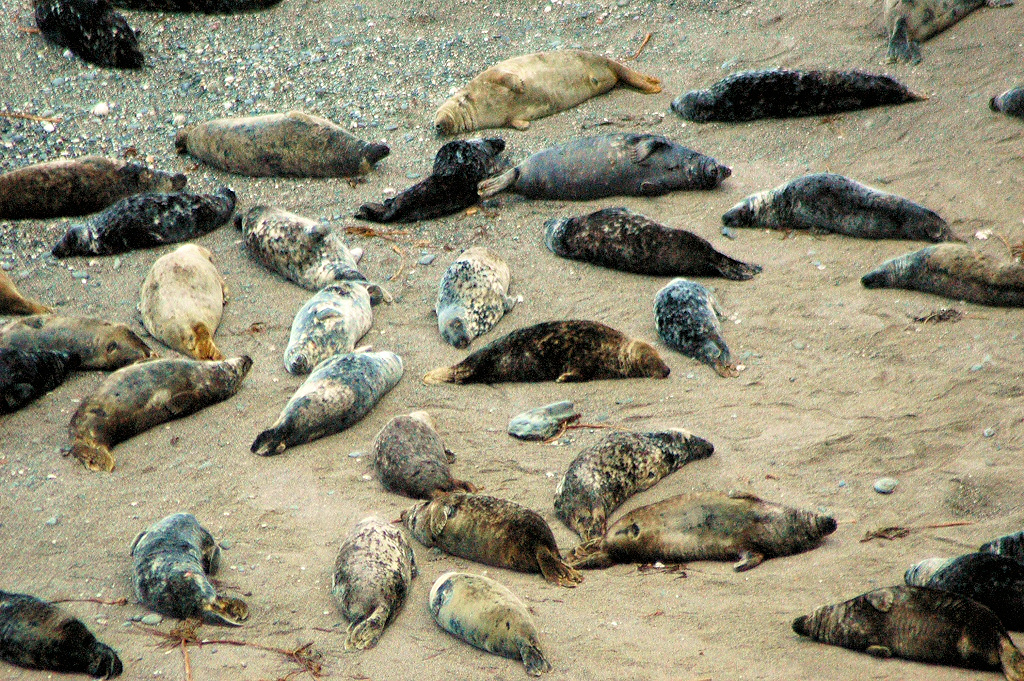
Why did you lot screw up your planetary home? After all, being a distinctly desirable residence, billions of souls want to live there. And, (you might have to take my word for this) most worlds in this universe don’t host souls in billions. If I remember rightly, the Nine once said that the optimum population of planet Earth is around two hundred million.
It is a planet of amplified choice – we are each and all given a capacity to create our lives as we feel best. This isn’t just a choice between Toyotas and Mitsubishis, or between Copenhagen and Buenos Aires. It’s deeper, and when we are confronted with earth-shaking crises, we’re given the gift of amplified choice. We’re dragged into fundamentals.
Disaster – which means ‘out of sync with the stars’ – is a gift. This is what we need to get straight about. We need to meet the future facing forwards.
Me too, with my cancer, which will inevitably kill me sometime. It’s alright. My bones could disintegrate, my stomach could block up, an infection could floor me. I could die alone with nobody noticing, nobody here to hold my hand. I could be floored by a blast of phone radiation given to me by someone who loves me and didn’t mean to be so generous. If such is the case, so be it – it’s all for the learning. Soul-learning, about the true and full nature of existence as a human.
I’ll be going home. Done. Cooked. But even then, it doesn’t stop there.
I’m tempted to quote the lyrics of a song, ‘I just wanna be there’, by a late, great soul-friend, John Cartwright, and it went:
“I just wanna be there / When we all start to re-pair / All the damage to our Mother / And our sisters and our brothers / All deserving to be fed / In the spirit and the body… / It is doing in my head / There is nothing to be said / Time is running out…
“Seeds bursting to grow / Dying of hunger, under the snow / My need, bursting my heart… / Where do we wander? Where do we start? /
“My soul… silently smiles / Laughs as the water falls from my eyes. / Each tear, spelling it out… / Rise or go under… Rise here and now!“
[Glastonbury friends will know John and Jaki’s band, Court of Miracles – ‘the best band you never heard of’, to quote the late Justin Credible. I couldn’t find an online version of this song, but here’s one of their uplifting albums from the 1980s, called International Times.]
Peace, brothers and sisters. Despite everything, it’s okay – just remember that.
With love, Paldywan Kenobi.
————————
Site: www.palden.co.uk
Blog: https://penwithbeyond.blog
Audiobook: www.palden.co.uk/audiobook.html
Podcasts: www.palden.co.uk/podcasts.html
